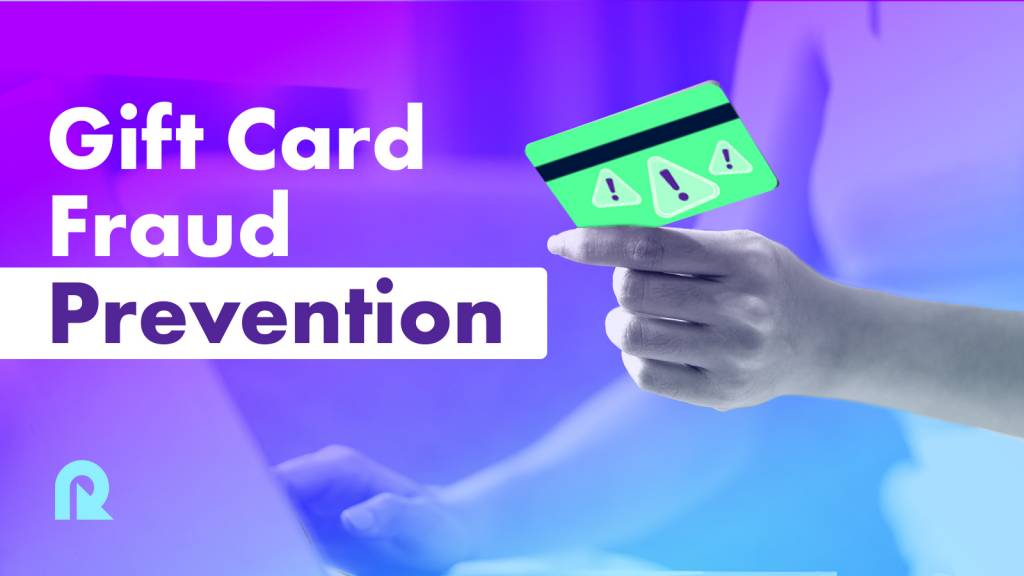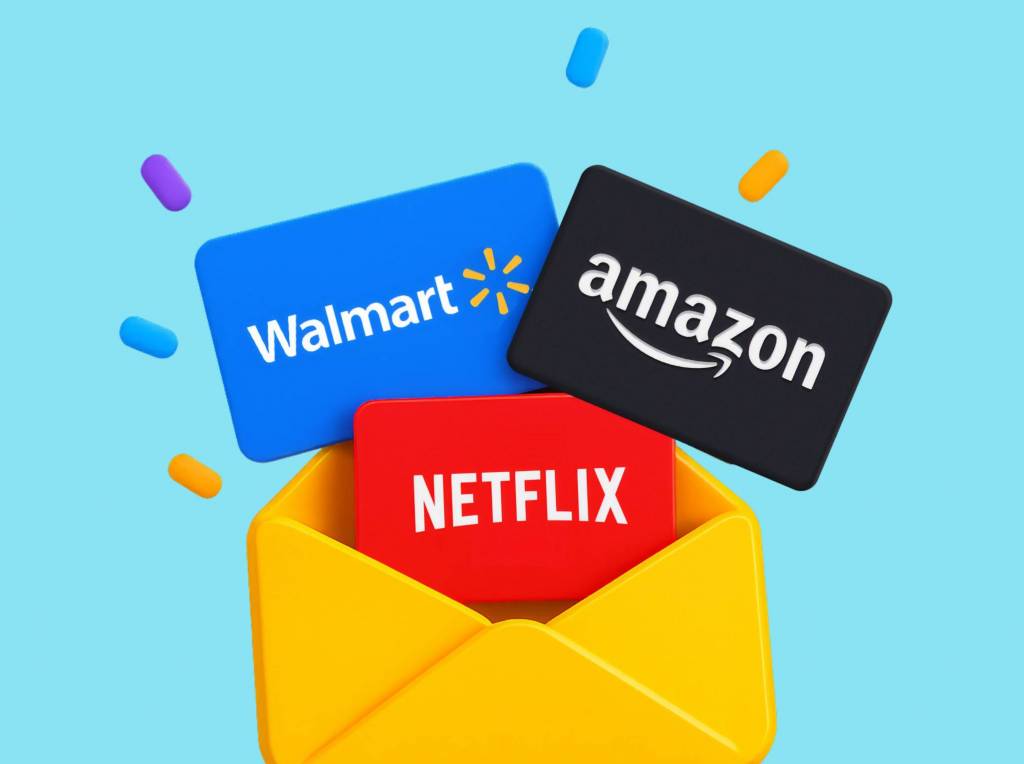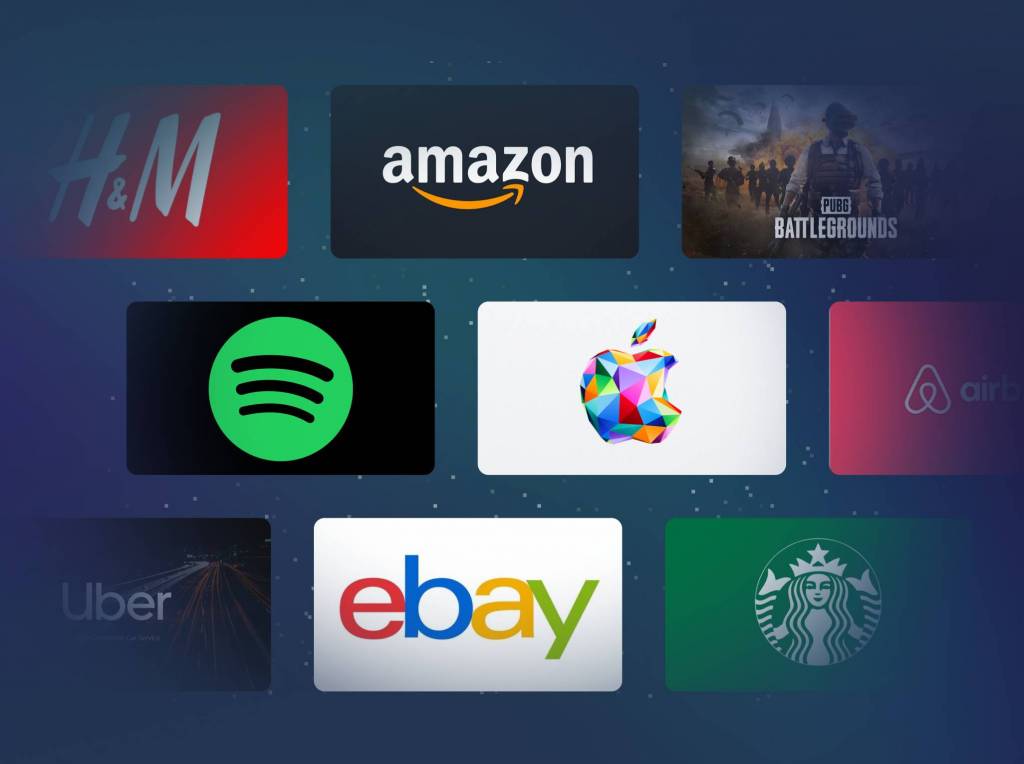Imagine your employee whom you have just gifted a $500 gift card getting to a store with her children and realizing that the card is empty. Such was the experience of Haasai, who was interviewed as part of NBC Bay Area’s investigation (together with the FBI) into the growing cases of gift card fraud.
Awareness of gift card fraud prevention strategies is no longer a luxury as scammers become more sophisticated. Haasai’s case is not unique as 41,633 cases of gift card fraud (worth $216.6 million) were reported in 2023 by the Federal Trade Commission.
As a business that rewards employees, sales reps, customers, and survey respondents with gift cards, these fraud cases can cause embarrassment (as some recipients may start imagining that you are the one trying to scam them), financial losses (where you have to purchase new cards to meet the initial objectives), and discouragement (where you get frustrated with the whole reward idea).
Given the popularity of gift cards and their advantages as reward programs (flexibility, personalisation, usage by those without bank accounts, among others), businesses who continue to use them must be aware of how to outsmart scammers with gift card fraud prevention strategies.
In this article, we will consider some common gift card scams and highlight 9 strategies you can use to prevent them.
- The most common types of gift card fraud
- How to prevent gift card fraud? 9 useful strategies
- What to do after a fraud has occurred?
[Do you want to use gift cards for your reward programs without fear of scammers? Sign up for Reloadly to securely buy verified gift cards from over 300 brands.]
1. The most common types of gift card fraud
Scammers often target gift cards because they are easy to purchase, can be easily turned into cash in many secondary marketplaces, are not attached to any particular individual (unlike debit cards and credit cards), and can’t be easily traced to the actual user of the card.
How does gift card fraud work?
They can take three broad forms.
First are the ones that involve buying fake cards that have been compromised by a scammer (via switching, skimming, etc). Second are those that involve purchasing legit gift cards for scammers (advance fee scams, utility bill scams, etc.). Third are those involving sophisticated software trying to steal gift card numbers.
Below are the most common gift card scams across the three categories:
Switching or snapping
This is common with stores that sell physical gift cards. Scammers will steal an original gift card from the store and replace it with a cloned one. Some of them can even break into stores at night to steal these cards in mass.
Most Walmart gift card fraud and Target gift card fraud (as reported by NBC Bay Area) are of this form.
Skimming
This involves scammers scanning the magnetic stripe of a gift card and copying the data into another card. With that data, they can go on to use the card once the buyer has concluded the gift card activation.
Some of these scammers work in tandem with a worker in the store.
Number generators and bots
More sophisticated hackers use software and bots.
For example, a bot can search through retailers’ gift card balance check systems, identify activated cards, and then go on to copy the gift card number.
Number generators work similarly. They can take over the software that generates gift card numbers (through phishing) and then use them to create gift card numbers for their use.
Online auction sites
These sites attract gift card buyers with hard-to-believe discounts. Some of the gift cards sold on these sites don’t work and for those that work, the actual value is often less than the face value.
Advance fee scams
These scammers contact individuals through phone calls or emails (they even use social media these days) to inform them about a prize they have won and demand that they pay a certain amount before they can access it.
They will specifically ask for gift cards as the preferred payment method. After the card has been sent, they go AWOL.
Utility bill scams
The target here is those with outstanding utility bills. Scammers will impersonate utility companies and threaten disconnection unless the target can pay immediately with a gift card.
Tax refund fraud
These fraudsters use stolen identities (through social security numbers, for example) to request tax refunds and they include a prepaid card (or open-loop gift card) as the destination for the refund.
Tax or fine payment fraud
Scammers will disguise themselves as representatives of the IRS or the SSA (or any other government agency) requesting you to pay taxes or some fines through gift cards.
Repair fraud
Fraudsters impersonate tech support staff of technology companies and they offer to help with some problems on the target’s computer. They can request a gift card or a prepaid card during the process.
Emergency fraud
Some scammers will impersonate a family member or friend and request gift cards to meet an emergency. The sophisticated ones will even use voice cloning to make it believable.
Card reloading scam
This works only with reloadable open-loop gift cards (or reloadable prepaid cards). Scammers can impersonate the cardholder, call a representative of the company that issued the card, and request a reload.
In addition to the above, we also have scams targeted specifically at gift card resellers. An example is gift card chargeback.
Here, scammers use stolen credit card information (gotten through an account takeover) to purchase gift cards. When the actual owner detects the credit card fraud, they will request a chargeback. This can result in losses for the e-commerce business if the gift card sales cannot be traced.
2. How to prevent gift card fraud? 9 useful strategies
As a business that uses gift cards for reward programs, you should be concerned with some of the scams we have identified above.
Though utility bill scams do not directly concern you, skimming does. You may not care about repair fraud but you cannot overlook card reloading scams. The same is true for online auction sites, switching, and bots.
Now let’s consider 9 things you can do to protect yourself from these scams and avoid the embarrassment, financial loss, and discouragement that can follow them.
Prioritize digital gift cards
Since switching and skimming remain the two most common forms of gift card fraud, you can reduce the likelihood of fraud by prioritizing digital gift cards (or egift cards).
Of course, digital gift cards are not totally safe (and we will consider how to prevent gift card fraud associated with them) but for a business rewarding employees and others with gift cards, they are the safer option.
Choose reputable gift card platforms
Whether you are buying physical or digital gift cards, you must choose a gift card platform that you can trust. The platform must be run by reliable people and there must be enough security protocols on their website to prevent gift card fraud of various stripes.
Take Reloadly for example. The company has more than 20,000 customers worldwide and they have business partnerships with the likes of MTN, Airtel, Vodafone, and Digicel, among others.
On the security front, they protect users of their platform with 2FA (two-factor authentication), whitelist service and security API checklist, among others.
Verify gift cards
If you still choose to purchase physical gift cards, you will need to verify them to ensure that there are no signs of tampering. Preferably, if you buy them in-store, ensure you only buy locked-up gift cards. In that way, you can be sure the card has not been tampered with through switching or skimming.
Choosing a reputable gift card platform is an easy way to outsource this step. Platforms like Reloadly will verify the validity of their gift cards before delivering them to your employees, customers, sales reps, or survey respondents.
Avoid online auction sites
The discounts offered on auction sites can be tantalizing. But don’t fall for it.
Interestingly, you can get good discount offers, especially on bulk purchases, on platforms like Reloadly. So, why risk auction sites where you can get scammed?
Only allow your business to initiate card reloads
The card reloading scam can work only when you allow recipients of reloadable gift cards or prepaid cards to request reloads.
Ideally, since you are the one rewarding them, any reload should originate from you. Even if you have an agreement with your sales team that you will reload a certain amount anytime they meet a sales target, the reload should still originate from you.
If employees or other recipients cannot call you to reload cards, then any call from a cybercriminal requesting a reload can be easily flagged as a scam.
Block suspicious reloadable cards
If any of the recipients of your reloadable cards raise an alarm about suspicious usage, you should block the card involved immediately and issue another one.
Improve website security
If you accept gift card payments on your website, then you also need to be concerned about the gift card bots that scammers use.
You can do this by installing fraud detection software that will help identify and prevent the activities of suspicious bots. Also, consider using SSL security, captchas, and firewalls on your website to reduce the risk of cyberattacks.
Identity verification
You can also include an additional layer of identity verification when customers on your website are trying to pay with gift cards or prepaid cards. This might include asking for a phone number or email address that you can send a verification code to. Such a step might even be more necessary for first-time buyers.
By collecting personal information, you make it easier for scammers to be identified and traced.
Educate recipients
Once you have deployed the right gift card fraud prevention strategies, it is no longer your responsibility if the recipients of the card fall to a utility or repair or advance fee scam.
Yet, knowing that the value of the card was not finally received by the intended recipient might still be a source of concern for you even if it is not your fault.
Consequently, you might consider educating employees, customers, survey respondents, and sales reps, among others, about gift card scams and gift card security.
3. What should you do after fraud has occurred?
What if your organization or your customers have already lost money to gift card fraud?
You can take the following steps to seek reprieve:
Open-loop gift cards
For open-loop gift cards, both Visa and MasterCard have processes for dealing with fraud involving the prepaid cards they issue. However, these processes often exclude certain “anonymous transactions.”
However, since these anonymous transactions that are excluded are not explicitly listed, there is no harm in reporting any fraudulent transaction.
Closed-loop gift cards
Since closed-loop gift cards (Apple, Walmart, Target, Amazon, eBay, Google Play) are not issued by card networks, they are not covered by the same processes identified above.
Nevertheless, all hope is not lost.
According to the FTC, individuals and businesses can report any scam to the card issuer and ask for a refund (some companies will make a refund). The FTC has a list of popular websites and links to where your organization can complain. Alternatively, you can lodge the complaint with the FTC itself.
If any of your employees, customers, or sales reps, among others, are the victims of gift card fraud, you can also encourage them to complain by taking the above steps.
Are gift cards traceable?
“Gift cards tied into credit card networks, such as Visa prepaid cards, can be traced,” according to Chargeback Gurus, a platform helping e-commerce businesses deal with chargebacks. “For gift cards tied to individual merchants, it depends on what systems and processes the merchant has in place.”
Regarding closed-loop gift cards, Date Dome, a fraud protection platform, notes that “while most gift cards don’t require personal information to buy, retailers can keep records of when and where each card was bought.”
Similarly, “online stores can also build custom systems for tracing gift card purchases, although it can be a little more complex.”
Consequently, there is no harm in reporting a gift card fraud.
Yet, the best way to deal with gift card fraud is to implement the gift card fraud prevention methods we have listed above.
The most significant of these is working with a reputable gift card company. With Reloadly, you can purchase more than 14,000 gift card products from over 300 brands and send them to recipients across the globe.
We verify our gift cards and we have a watertight security system that will protect you from cyberattacks.
[Are you ready to execute your reward programs without fear of losing money to scammers? Sign up for Reloadly to access a wide range of verified gift cards on a secured platform.]
Takeaways
- Gift card fraud is on the rise as scammers become more sophisticated.
- These scams can cause businesses that use gift cards for reward programs to be embarrassed, discouraged, and lose money.
- To avoid these, they need to implement gift card fraud prevention strategies that include avoiding online auction sites, choosing reputable providers, and prioritising digital gift cards, among others.
- When gift card fraud occurs, it must be reported.



